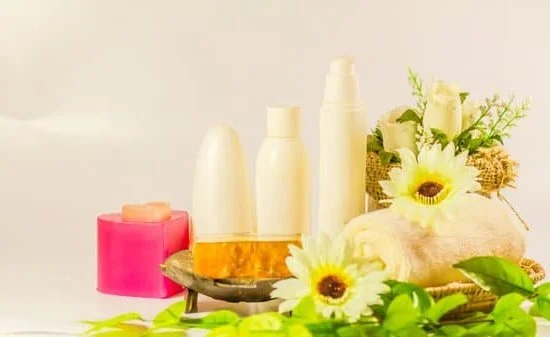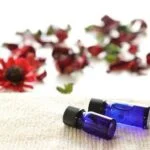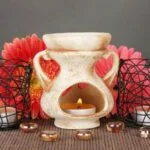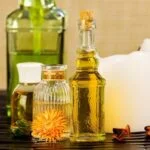Aromatherapy, also known as fragrance therapy, has been used for centuries as a natural healing practice. This alternative medicine utilizes essential oils and aromatic plant compounds to promote physical and psychological well-being. From stress relief and mood enhancement to skincare and pain management, aromatherapy offers a wide range of therapeutic benefits.
In this article, we will delve into the world of aromatherapy, exploring its origins, understanding how it works, and uncovering its numerous applications for holistic wellness. Whether you are seeking relaxation, mental clarity, immune support, or improved sleep quality, aromatherapy may hold the key to unlocking these benefits naturally.
Throughout the sections to follow, we will guide you through the various facets of aromatherapy and shed light on how it can be used as a complementary therapy alongside traditional medical treatments. Prepare to embark on a journey of sensory exploration as we unveil the mysteries of fragrance therapy and reveal how it can enrich your life in unexpected ways.
Understanding Aromatherapy
Aromatherapy is a complementary therapy that uses plant extracts, known as essential oils, to promote physical and psychological well-being. It has been practiced for thousands of years and is rooted in the belief that certain scents can trigger responses in the brain and body, leading to various therapeutic effects. In this section, we will delve into the basics of aromatherapy, exploring what it is and how it works.
At its core, aromatherapy harnesses the power of scent to stimulate the limbic system in the brain, which is responsible for emotions, behavior, memory, and other cognitive functions. When essential oils are inhaled or applied topically, they can activate certain receptors in the nose or skin, sending signals to the brain and triggering specific responses.
One of the primary ways aromatherapy works is through inhalation. When you inhale an essential oil’s aroma molecules, they travel through the nasal cavity to reach olfactory receptors. These receptors then send signals to the limbic system, influencing emotions and mood. Inhalation can also have a direct impact on physiological processes by stimulating the respiratory system or affecting hormone production.
Another way aromatherapy works is through topical application. Essential oils are highly concentrated and should be diluted before applying them directly to the skin. When properly diluted and massaged onto the skin, essential oils can penetrate into deeper layers and be absorbed into the bloodstream. This allows their therapeutic properties to take effect throughout the body.
Understanding how aromatherapy works can help individuals make informed decisions about incorporating it into their wellness routine. Whether through inhalation or topical application, aromatherapy offers a holistic approach to promoting overall well-being. By tapping into our sense of smell and harnessing nature’s fragrances, this ancient healing art has become a trusted tool for enhancing both physical health and emotional balance.
| Aromatherapy Benefits | How It Works |
|---|---|
| Stress relief | The aroma molecules of certain essential oils can stimulate the limbic system and trigger relaxation responses in the brain and body. |
| Mood enhancement | Specific scents can influence neurotransmitter activity, promoting the release of feel-good chemicals like serotonin and dopamine. |
| Better sleep quality | Aromatherapy can help calm the nervous system and promote relaxation, making it easier to fall asleep and stay asleep. |
Aromatherapy for Stress Relief
Stress has become an inevitable part of modern life, affecting individuals physically, mentally, and emotionally. However, aromatherapy offers a natural and effective solution to help alleviate stress and promote overall well-being. Through the use of essential oils derived from plants, this age-old practice harnesses the power of scent to provide relaxation and relief from daily stressors.
One of the main ways aromatherapy helps with stress relief is by triggering the brain’s limbic system, which controls emotions and memories. Certain scents have been found to have a direct impact on stimulating specific brain receptors that can induce feelings of calmness and tranquility. For example, lavender essential oil is well-known for its ability to reduce anxiety and promote relaxation.
Another therapeutic benefit of aromatherapy for stress relief is its ability to balance hormone levels in the body. When we are stressed, our bodies release cortisol, often referred to as the “stress hormone.” This heightened level of cortisol can lead to negative side effects such as increased heart rate, elevated blood pressure, and disrupted sleep patterns. However, studies have shown that certain essential oils like bergamot and ylang-ylang can help regulate cortisol levels and promote a sense of calmness.
To incorporate aromatherapy into your stress relief routine, you can try various methods such as diffusing essential oils in your home or office space, using them in massage or bath oils, or even simply inhaling their aroma directly from the bottle. Here are some popular essential oils known for their stress-relieving properties:
- Lavender – Promotes relaxation and eases anxiety
- Chamomile – Soothes nerves and reduces tension
- Bergamot – Calms the mind and uplifts mood
- Ylang-Ylang – Brings about feelings of joy and tranquility
- Neroli – Reduces stress and improves overall well-being
Incorporating aromatherapy into your daily routine can be a simple yet effective way to manage stress and promote a sense of balance and calm in your life. Whether through diffusers, massage oils, or personal inhalers, the therapeutic benefits of aromatherapy make it an essential tool for stress relief in today’s fast-paced world.
Boost Your Mood Naturally
Aromatherapy has long been recognized for its ability to enhance emotional well-being and boost mood naturally. The use of essential oils, which are extracted from plants, has been found to have a profound impact on our emotions and can help alleviate symptoms of stress, anxiety, and depression. Aromatherapy works by stimulating the olfactory system, the part of the brain responsible for our sense of smell, which in turn triggers various emotional and physiological responses.
Numerous studies have shown that certain essential oils have mood-boosting properties. For example, lavender oil is known for its calming effects and can help reduce feelings of anxiety and promote relaxation. Citrus scents like lemon or bergamot oil are uplifting and invigorating, making them helpful for addressing symptoms of depression or low mood.
In addition to their direct effects on emotions, essential oils used in aromatherapy can also indirectly improve emotional well-being by promoting better sleep quality and reducing stress levels. Research has shown that lavender oil, when diffused in the bedroom or added to a warm bath before bedtime, can enhance sleep quality and reduce insomnia symptoms. Better sleep not only improves our physical health but also has a significant impact on our mood.
| Essential Oil | Properties |
|---|---|
| Lavender | Calming |
| Lemon | Uplifting |
| Bergamot | Invigorating |
Enhancing Sleep Quality
Introduction to Aromatherapy for Sleep Enhancement
A good night’s sleep is essential for overall well-being and productivity. However, many people struggle with getting sufficient rest, leading to various negative consequences on their physical and mental health. Fortunately, aromatherapy offers a natural and effective solution to promote better sleep quality. By harnessing the power of scent, aromatherapy can create a calming environment and induce relaxation, helping individuals achieve restful nights.
The Science Behind Aromatherapy’s Sleep-Enhancing Effects
Aromatherapy works by using essential oils derived from plants, which contain aromatic compounds that can influence our brain and body. When inhaled or applied topically, these compounds interact with the limbic system-the part of the brain responsible for emotions and memory-which plays a crucial role in sleep regulation.
The aroma of certain essential oils triggers physiological responses that support relaxation, reduce stress hormone levels, regulate heart rate, and encourage the production of sleep-inducing neurotransmitters like serotonin and melatonin.
Popular Essential Oils for Better Sleep
Several essential oils have been found to be particularly effective in promoting sleep quality. Lavender oil is one of the most popular choices due to its calming properties that help alleviate anxiety and promote relaxation. Chamomile oil is another option known for its soothing effects on both the mind and body. Cedarwood oil has also shown promising results in improving sleep duration and quality by reducing agitation and inducing tranquility.
Other essential oils that have been proven beneficial for promoting restful nights include bergamot, ylang-ylang, valerian root, clary sage, marjoram, frankincense, and sandalwood. Individual preferences can vary when it comes to aromas; therefore it is advisable to experiment with different scents to find what works best for each individual’s unique needs and preferences.
Revitalize Your Skin
Aromatherapy offers more than just soothing fragrances and relaxation. It can also play a significant role in revitalizing your skin and enhancing your overall beauty. By harnessing the power of essential oils, aromatherapy provides natural and effective solutions for various skin concerns.
One way aromatherapy benefits the skin is by promoting hydration and moisturization. Essential oils such as lavender, rose, and geranium can help nourish and hydrate dry skin, giving it a healthy glow. These oils can also improve the skin’s elasticity and reduce the appearance of fine lines and wrinkles.
In addition to hydration, aromatherapy can also address specific skincare issues like acne, inflammation, and uneven skin tone. Tea tree oil is known for its antibacterial properties and can be used to treat acne-prone skin. On the other hand, chamomile oil has anti-inflammatory effects that can soothe redness and irritation. Essential oils like lemon, grapefruit, and frankincense are beneficial for brightening dull skin and minimizing dark spots.
To incorporate aromatherapy into your skincare routine, you can create your own homemade beauty products using essential oils. For example:
- Create a facial steam by adding a few drops of essential oil to a bowl of hot water. Place a towel over your head to trap the steam and let the aromatic vapors work their magic on your skin.
- Make a DIY face mask by combining essential oils with natural ingredients like yogurt, honey, or clay. This will allow you to target specific skincare concerns while enjoying the therapeutic benefits of aromatherapy.
- Add a few drops of essential oil to your regular moisturizer or body lotion for an extra boost of nourishment.
Remember to always dilute essential oils properly before applying them directly to your skin to avoid any adverse reactions.
By incorporating aromatherapy into your skincare routine, you can revitalize your skin naturally and enhance your beauty from the inside out. The therapeutic benefits of essential oils provide a holistic approach to skincare that not only addresses the physical aspects but also promotes relaxation and emotional well-being. Explore the world of aromatherapy and discover how it can transform your beauty regimen into a luxurious and soothing experience.
Relieving Pain and Discomfort
Understanding Pain and Discomfort
Pain and discomfort can have a profound impact on our daily lives, hindering productivity, and reducing overall well-being. Whether it’s due to chronic conditions, injuries, or temporary ailments, finding effective relief is crucial. While conventional methods such as medication and physical therapy are commonly used, many people are turning to alternative therapies like aromatherapy for pain management. Aromatherapy, with its soothing fragrances derived from essential oils, has shown promising results in relieving various types of pain.
The Role of Aromatherapy in Pain Relief
Aromatherapy works by stimulating the olfactory system and triggering the brain’s response to different scents. When inhaled or applied topically, the essential oils interact with receptors in the nasal cavity and skin, sending signals to the limbic system – the part of the brain responsible for emotions and sensations. Through this process, aromatherapy can help reduce pain perception while promoting relaxation and providing comfort.
Popular Essential Oils for Pain Relief
Several essential oils have been identified for their pain-relieving properties. Among these are lavender oil, known for its calming effects and ability to alleviate headaches; peppermint oil with its cooling sensation that can ease muscle soreness; eucalyptus oil which has anti-inflammatory properties helpful in relieving joint and muscle pain; and chamomile oil that aids in soothing inflammation and promoting a sense of calmness.
There are various ways to incorporate these essential oils into a pain-relief routine. Diffusing them into the air through an aromatherapy diffuser allows for inhalation therapy. Massaging diluted essential oils onto affected areas is another popular method. Additionally, taking relaxing baths with a few drops of essential oil added to warm water or using aromatic sprays on bedding or clothing can provide continuous relief throughout the day.
As with any alternative therapy, it is essential to consult with a healthcare professional before incorporating aromatherapy into your pain management routine. Additionally, understanding the proper usage and dosage of essential oils is crucial for safe and effective results. By exploring the pain-relieving capabilities of aromatherapy, individuals can find a natural and holistic approach to managing their discomfort and improving their overall well-being.
Aromatherapy for Mental Clarity and Focus
Aromatherapy has long been used for its ability to promote mental clarity and enhance focus. The use of essential oils in aromatherapy can help stimulate the mind, improve concentration, and boost cognitive function. Many people turn to aromatherapy as a natural and holistic approach to mental wellness.
One of the key ways that aromatherapy supports mental clarity is through inhalation. When you inhale certain essential oils, it can have a direct impact on your brain and nervous system. Some essential oils, such as rosemary, lemon, and peppermint, are known for their stimulating properties. These scents can help increase alertness and improve focus, making them especially useful for studying or working on complex tasks.
In addition to inhalation, aromatherapy can also be applied topically to support mental clarity and focus. Essential oils like lavender and frankincense have calming properties that can reduce stress and anxiety, allowing your mind to function more clearly. By applying these oils to the temples or wrists, you can create a sense of calmness that enhances your ability to think clearly and stay focused on the task at hand.
Overall, aromatherapy offers a natural way to unleash your full cognitive potential. Whether you choose to inhale stimulating scents or apply calming oils topically, incorporating aromatherapy into your daily routine can help sharpen your mind and improve mental clarity. With its wide range of benefits for mental well-being, it’s no wonder that so many people are turning to aromatherapy as a tool for enhancing focus and unlocking their cognitive capabilities.
Strengthening the Body’s Defenses
Aromatherapy is not only known for its ability to reduce stress, boost mood, and promote relaxation, but it can also play a role in strengthening the body’s defenses and supporting immune health. While aromatherapy should never be used as a substitute for medical treatment, it can be a helpful complement to traditional healthcare practices.
Certain essential oils have been found to have antimicrobial properties that can help fight against pathogens. For example, tea tree oil has been shown to have antibacterial, antiviral, and antifungal properties. Eucalyptus oil is another essential oil that has strong antimicrobial effects and can help clear congestion in the respiratory tract.
In addition to their antimicrobial properties, some essential oils also have immunostimulant effects. These oils can help stimulate the production of white blood cells and strengthen the immune response. Examples of immune-boosting essential oils include lemon oil, which is known for its antioxidant properties, and frankincense oil, which has been used traditionally in Ayurvedic medicine for its immune-supporting benefits.
When using aromatherapy for immune support, it’s important to dilute essential oils properly and use them safely. Essential oils are highly concentrated substances and should never be ingested or applied directly to the skin without proper dilution. It’s best to consult with a qualified aromatherapist or healthcare professional before incorporating aromatherapy into your wellness routine.
Conclusion
In conclusion, aromatherapy is a versatile healing art that offers a wide range of benefits for holistic wellness. Throughout this article, we have explored the various ways in which aromatherapy can improve our overall well-being. From reducing stress and boosting mood to promoting restful sleep and revitalizing the skin, aromatherapy has proven to be a powerful tool for enhancing both physical and emotional health.
One of the key strengths of aromatherapy lies in its ability to provide natural relief from pain and discomfort. By harnessing the power of essential oils, this therapy can help alleviate headaches, muscle soreness, and even chronic conditions such as arthritis. Additionally, aromatherapy has been found to support mental clarity and focus, allowing individuals to unlock their full cognitive potential.
Another significant benefit of aromatherapy is its ability to strengthen the body’s defenses and support immune health. Certain essential oils possess antimicrobial properties that can help fight off infections, while others have been shown to boost the production of white blood cells. By incorporating aromatherapy into our daily routines, we can fortify our immune systems and provide our bodies with an extra layer of protection against illness.
Frequently Asked Questions
What does aromatherapy do to the brain?
Aromatherapy is believed to have various effects on the brain. When we inhale certain essential oils, they can stimulate the olfactory system and evoke powerful emotional responses. These oils can activate specific areas of the brain that are involved in emotions, memory, and even stress response.
For example, lavender oil has been shown to have a calming effect by affecting neurotransmitters that promote relaxation and reduce anxiety. On the other hand, some essential oils like peppermint or rosemary can have invigorating effects by stimulating areas associated with alertness and focus. Overall, aromatherapy has the potential to influence mood and cognition through its impact on brain activity.
Does aromatherapy really work?
The effectiveness of aromatherapy remains a topic of debate within the scientific community. While many people anecdotally report positive experiences with aromatherapy, the scientific evidence supporting its efficacy is limited and inconclusive in some cases.
Some studies have demonstrated that certain essential oils can help alleviate symptoms of anxiety, depression, pain, or improve sleep quality. However, it’s crucial to acknowledge that individual responses to aromatherapy may vary significantly and not all claims made about its therapeutic benefits are supported by rigorous scientific research.
What are the pros and cons of aromatherapy?
Like any alternative therapy or treatment modality, aromatherapy has its own set of pros and cons. One clear advantage is that it offers natural remedies for various conditions without relying heavily on medications or invasive procedures. Essential oils derived from plants are generally considered safe when used appropriately under expert guidance but can also be easily accessible for personal use at home.
Additionally, aromatherapy is often used as a complementary approach alongside conventional medicine to enhance well-being or manage symptoms holistically. However, it’s important to consider potential downsides as well: allergic reactions or skin irritations can occur in sensitive individuals; incorrect use of essential oils may cause harm; there’s a lack of standardized guidelines for dosage and treatment duration; and some claims made about aromatherapy’s effectiveness may be exaggerated or not supported by evidence. It’s recommended to consult with a qualified practitioner and exercise caution when using aromatherapy.

Are you looking for a natural way to improve your health and wellbeing?
If so, aromatherapy may be the answer for you.





